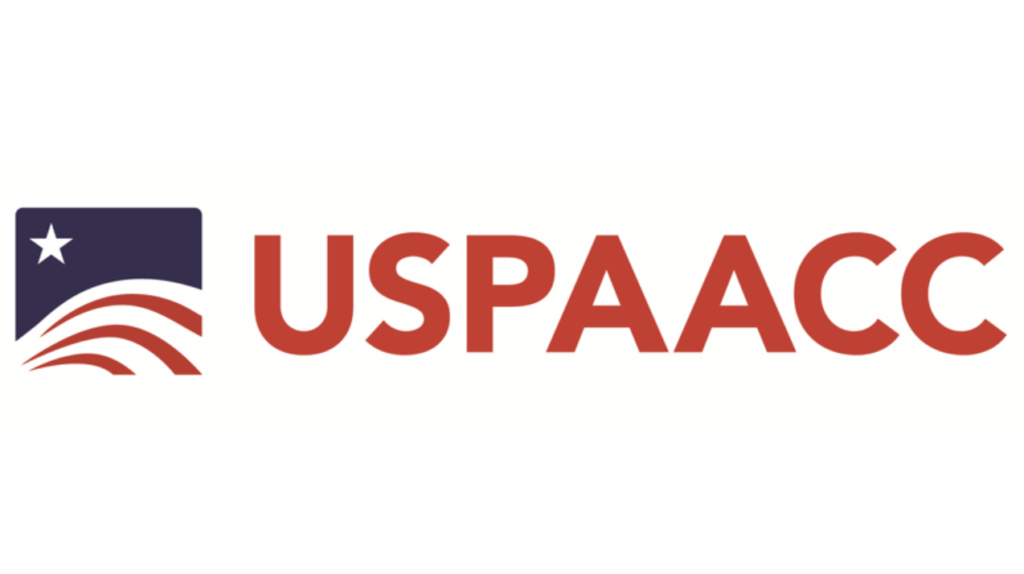By Susan Au Allen & Asheesh Agarwal
Technology’s vital role to the growth and development of minority small businesses – and perhaps even to their survival in the digital economy – was recently highlighted at the CelebrASIAN Business + Procurement Conference: BREAKTHROUGH.
Earlier this month, the US Pan Asian American Chamber of Commerce Education Foundation (USPAACC) hosted hundreds of top-caliber Pan Asian American businesses from around the country for a conference focused on business and procurement. The conference featured government agencies, including the National Aeronautics and Space Administration (NASA), the U.S. Department of Homeland Security (DHS), the Small Business Administration (SBA), and the Minority Business Development Agency of the U.S. Department of Commerce, all of whom expressed a strong desire to continue their partnership with USPAACC and other minority-owned businesses.
Leading technology companies, including Apple, Amazon, Google, and Meta, participated in the conference and delivered a similar message, as did Fortune 500 corporations from across sectors, including CVS, Nationwide, PepsiCo, Trane Technologies, and Wells Fargo.
The Pan Asian American community found common cause with other minority groups at the conference, represented by the leadership of the U.S. Black Chambers, Inc., United States Hispanic Chamber of Commerce, and diverse national organizations that seek to expand business opportunities for their constituents.
Much of the conference centered on the importance of technology and innovation, and how small business owners applied technology to increase efficiency and better serve their customers.
During a panel on artificial intelligence (AI), for example, a staffing company explained that it uses AI to improve its review of resumes to match applicants with job openings. The AI tools quickly scan resumes for key words and phrases, allowing employers to find new hires, and job-hunters to receive offers, in a much shorter amount of time.
Similarly, a call center executive explained that AI can efficiently review the transcripts of recorded conversations, and then identify errors and areas for improvement. This process leads to reduced wait times and more efficient service.
Others described how social media tools helped some companies survive the pandemic. For instance, a digital marketing company helped a Filipino restaurant develop a substantial social media profile to attract new customers.
Throughout, panelists stressed the indispensable need for counseling and capital. One panelist described how a Chinese American couple received help from a financial tech company to manage their company’s payroll and inventory. In other instances, smaller firms needed investment and technical expertise from larger companies to remain viable. In a hallway conversation, for instance, a bank with a venture capital arm acknowledged that anti-tech proposals could hinder innovation and growth. The same could be said of overly aggressive merger enforcement from the Federal Trade Commission (FTC) and Department of Justice (DOJ), who are challenging mergers that provide critical capital and technical expertise to smaller companies.
Perhaps as its most important takeaway, the conference spotlighted the critical role that Pan Asian Americans play in our economy. Pan Asian Americans comprise approximately six percent of the population but own nearly 10 percent of the businesses across the United States. Many of the country’s largest tech companies, including Google and Microsoft, are led by Pan Asian Americans.
Toward the end of the 3-day conference, a dozen Pan Asian American high school students received college scholarships from corporate and Asian American business sponsors, that will allow most of them to study STEM courses (science, technology, engineering, and math) critical to future innovation. One student shared a touching story on how her family had escaped a repressive authoritarian regime for a better life in the United States – which moved some audience members to tears.
This student’s story, and the stories of hundreds of small businesses around the country, exemplify how Pan Asian Americans are living – and striving to achieve – the American Dream.
Susan Au Allen is CEO, U.S. Pan Asian American Chamber of Commerce Education Foundation (USPAACC), the most established and largest non-profit organization representing Pan Asian Americans and their related groups in business, sciences, the arts, sports, education, public and community services. Asheesh Agarwal is an advisor to the American Edge Project and an alumnus of both the FTC and DOJ.
